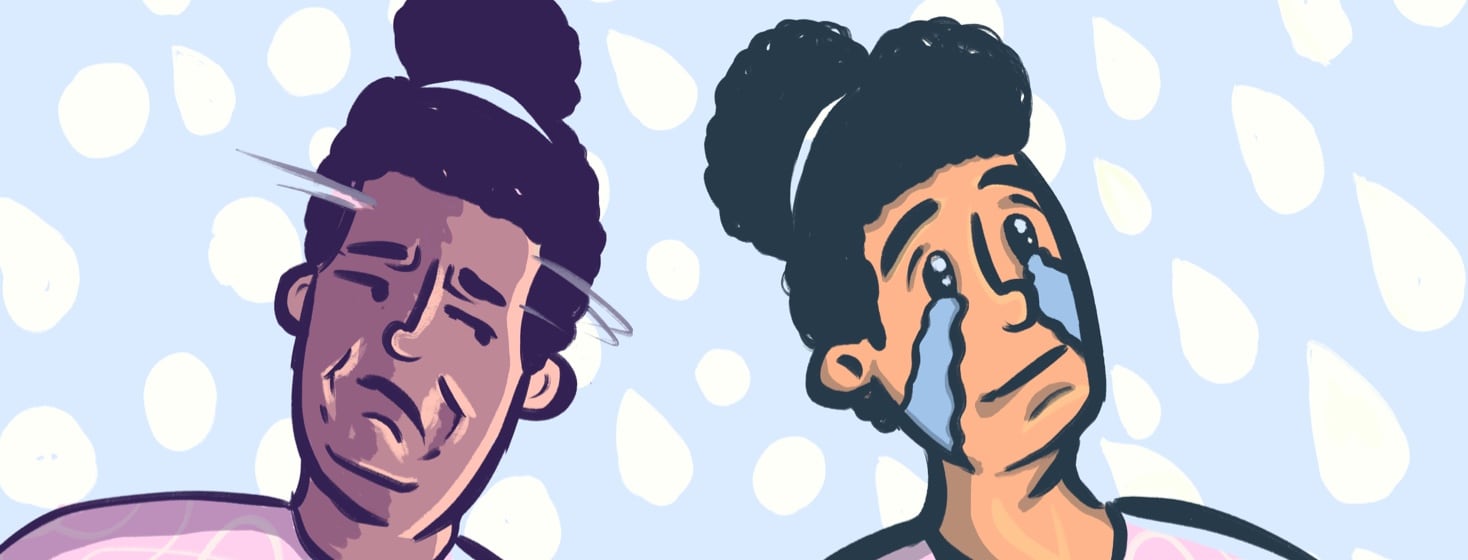One of The Great Psoriasis Questions: Should We Cry More?
I was eating lunch with a dermatology friend as I outlined my talk for the next day. I was scheduled to speak at The Psoriasis Association AGM. The focus of my discussion was on the mental health aspect of living with psoriasis.
As she provided her feedback, she said "You will be great! Don't cry.", she said jokingly.
The beginning of tears
The next morning I practiced my speech. When my time came, I confidently took to the podium. All started well, expected laugh at my opening slide, and then as the speech moved on, I could feel the wetness creeping into my eye.
I tried to ignore it. This talk was being filmed. Crying is not an option.
Crying can make a point
I managed to keep things under control. Then I shared a poem about my mental health challenges. It has a very positive message. The message was lost when at the beginning of the second paragraph, my lips started quivering. The tears were not just creeping, they were silently running down my face.
I think I pulled it back well, with the words of my dermatology friend ringing in my ears. The crying made a point. These tears are not tears of sadness. These are tears of relief.
Healthy tears
We are familiar with tears when we are hurt. When we experience sadness, a loss, we cry. These tears of sadness come quickly. We cry for other reasons too. Of course, we try not to. It's not socially acceptable really to cry much at all. Even for women.
These tears represented the pain I had repressed for so long. In my strep psoriasis flare, I hid my desperation and my suffering from my children. I tempered what I expressed to my husband, my friends and my colleagues at work.
These were healthy tears. Letting out the emotion that's been locked up for so long. We need to let out the pain, the frustration, the anger. Ideally not in front of a room full of people, but then why not?
Crying can make us feel better
Planning my talk, I hired a poet. I knew I wanted to share elements of my story, but in a way that would connect with people. Without poetry, I use the same words without really considering their meaning.
I cried when I wrote each verse, the sad ones, and the happy ones. I cried when I read it out loud for feedback. I cried when I practiced the talk in the morning. And I found myself crying when the time came. Afterward, people sought me out to thank me. By being so openly raw, other people feel more comfortable doing the same.
I will keep reading the poem until I don't cry. I don't know when that will be, but I do know that every time I do read it, I feel just a little bit better.

Join the conversation